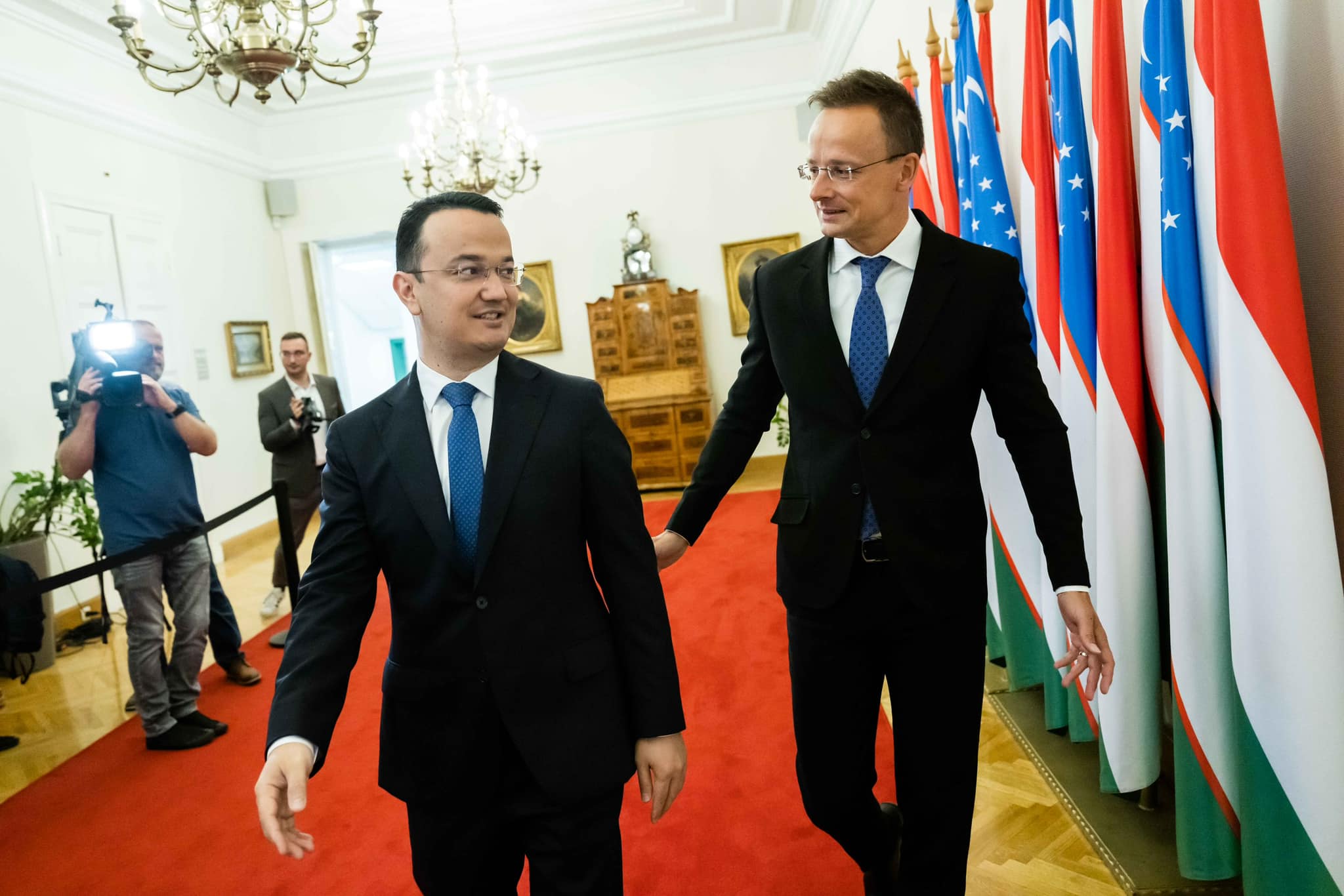"This cheap, safe, and environmentally friendly form of energy production remains a key element in our national energy strategies," said the foreign minister.Continue reading

Uzbekistan will establish a special industrial zone for Hungarian investors, where they will be able to operate under preferential rules, thereby further strengthening cooperation between the two countries, Minister of Foreign Affairs and Trade Péter Szijjártó announced in Budapest on Thursday.
The minister noted after the eighth meeting of the Hungarian-Uzbek Intergovernmental Committee for Economic Cooperation that an agreement had been signed on the establishment of a special economic zone near Tashkent, Uzbekistan, that will offer Hungarian companies specially tailored conditions.
He stressed that
several Hungarian pharmaceutical, agricultural, and food companies have already started preparing various projects.
The financial backing is also guaranteed, as a capital fund will soon be set up to support investment in Central Asia, he said.
He also pointed out that it was an important guarantee that Hungarian Bank, OTP, had become an important player in the local banking sector by acquiring 73% of the shares of one of the largest Uzbek financial institutions, and could therefore act as a kind of flagship to encourage Hungarian companies.
In a joint press conference with Uzbek Minister of Industry and Trade Laziz Kudratov, Péter Szijjártó highlighted the importance of the strategic partnership between the two countries and pointed out that Hungary has been given great opportunities to participate in the modernization of certain sectors in Uzbekistan.
He also noted that the government attaches particular importance to nuclear cooperation, since countries that can produce a significant part of the energy they use are the ones that can be truly secure today.
In this context, he said that
Uzbekistan is also planning to build a nuclear power plant in a place where there is not enough water for cooling, so Hungarian company, MVM EGI, having a strong track record in this field, could be considered for the supply of dry cooling technology to Hungarian standards.
He added that ten future Uzbek nuclear experts would be trained at Hungarian universities every year.
Szijjártó announced that the establishment of a direct air link by Wizz Air by the end of the year could give a new impetus to bilateral relations, but that
the Uzbek airline Qanot Sharq will launch its Budapest-Taskent service before then, at the end of the summer,
initially once a week, then twice a week from autumn, and three times a week next year.
Finally, the minister underlined that the new geopolitical and global economic realities have significantly enhanced the value of Central Asia and that East-West trade routes and relations now also pass through this region.
“Today we have taken the cooperation between Hungary and Uzbekistan up a few steps again, and this provides an opportunity for both the Hungarian and the Uzbek economy to reap even more benefits and results from this cooperation,” concluded the Foreign Minister.
Via MTI, Featured image via Facebook/Szijjártó Péter